The media here and elsewhere are still talking up a storm over President Trump's controversial remark in a recent interview with NBC News.
In the interview, conducted by phone and with Finland President Alexander Stubb presumably listening in as both leaders played golf, the President stated emphatically that he "couldn't care less" if automakers raised car prices due to his contentious 25% auto tariffs.
It was a blunt remark not uncharacteristic of Trump, who hasn’t conceded an apology for calling certain regions of the world “shithole countries” or for suggesting using disinfectants to treat COVID or for referring to some migrants as “not people.”
Every time the President speaks, you don't need a soothsayer to realize no one is making his decisions for him, particularly when it comes to his protectionist trade policies supposedly aimed at revitalizing domestic manufacturing. This time, though, Trump's people quickly clarified that the President's comments were directed at foreign automakers.
That makes perfect MAGA sense.
See also:
How Rising Living Costs Are Changing Car Maintenance Habits in Australia, the US, and Canada
Tariffs, Triumphs, and Trump’s Trade Tango
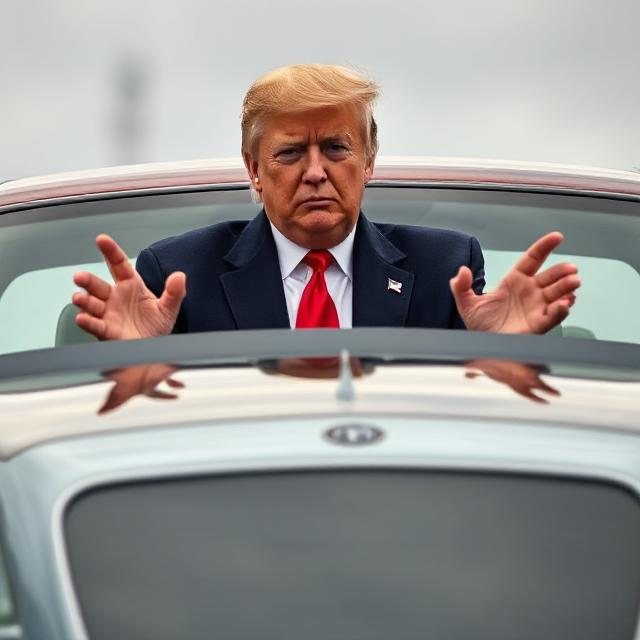
Trump’s indifference to the plight of foreign manufacturers reinforces and aligns with his conviction that expensive imports would drive consumers toward American-made automobiles. That's what tariffs are for.
Not even Trump would impose tariffs unaware that the pain will go around. None of us honestly thinks that’s the case. To Trump, as long as America gets stronger for it, even if the solidification completes long term, it’s worth it.
Forget Trump’s “couldn’t care less” remark for just a moment. How many Americans give two hooty hoots about relations with Canada, Mexico, China, etc.? The real bone of contention is the potential economic fallout. It’s going to be painful– we know this, but we must be adults enough to admit the big picture if there's any.
Analysts say the tariffs will see imported cars potentially costing thousands more. They say even US-assembled cars won’t be spared from the (leafing through the Donald Trump Dictionary) “bloodbath” of 25% tariffs, thanks to American automakers’ reliance on foreign components.
But that’s exactly what Trump is trying to fix. He’s never been shy on that front. He wants an America that doesn’t depend on anyone for anything. Trump wants everyone else to pale in significance compared to the United States.
He wants to be able to summon a European leader to the White House and tell them to do whatever he wants with their country, and American reporters get to ask them why they aren't wearing a suit.
He doesn’t want the other side to have any leverage. He wants American cars made in America and for foreign marques to build cars in America, creating jobs, getting taxed, and being subject to American laws as America sees fit. That’s the Trump perspective on MAGA.
Congratulations, Detroit
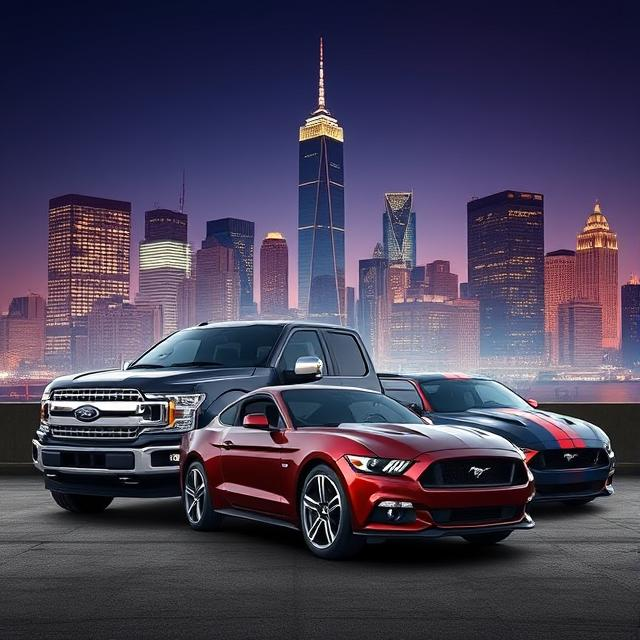
When NBC News asked him about his recent message to the auto sector’s top brass in light of the prevailing uncertainties, the President reiterated that he congratulated them.
“The message is congratulations," the President said over the phone. “If you make your car in the United States, you're going to make a lot of money. If you don't, you're going to have to probably come to the United States because if you make your car in the United States, there is no tariff."
How American marques are going to make a lot of money in the midst of this trade war is another enigma for Trump’s administration to unravel. Based on the feedback I got from industry professionals and analysts, a comparative few aren’t skeptics of Trump’s tariff bedlam. Yet, few categorically doubt the endgame.
It’s clear the bone of contention is the anticipated pain. For example, Thomas Lew, a contributor to Chinese arts and antiques, had a straightforward answer to my question about tariffs on foreign-made cars benefiting domestic industries and the US economy.
“It doesn’t,” he says. “His [Trump's] plan is [to] force people to buy second-rate vehicles and charge top prices, preventing consumers from getting the best products at a cheaper price."
Some respondents, like Urgelt, a US Federal government logistician, see the tariffs as needless punishment for everyone involved. “Mexico is the US’ largest trading partner,” he says.
“Frankly, we need Mexico at least as much as they need us. We need their labor. We need their consumption. The Houston-Northern Mexico industrial corridor is the fastest-growing segment of our economy. We have enormous sunk capital in Northern Mexico.
Trump's stupid, impulsive tariff proposal would absolutely wreck American companies and send Wall Street into a panic. Ironically, Trump's own administration negotiated the current free trade agreement. It's working! Now he wants to take a wrecking ball to it?”
Urget is right about many things. For starters, the Wall Street-in-a-panic part is already happening. According to The Washington Post, "The stock market closed out its worst quarter since spring 2022 on Monday as the Trump administration’s evolving trade policies rattle Wall Street.”
Urget is also right about Trump's administration negotiating the current free trade agreement. As the 45th president of the United States, Trump signed, along with Canadian Prime Minister Justin Trudeau and Mexican President Enrique Peña Nieto, the US-Mexico-Canada Agreement (USMCA) to replace the North American Free Trade Agreement (NAFTA).
Now, as Urget pointed out, Trump is looking to “take a wrecking ball” to the USMCA.
Economic Nationalism Or Political Theater
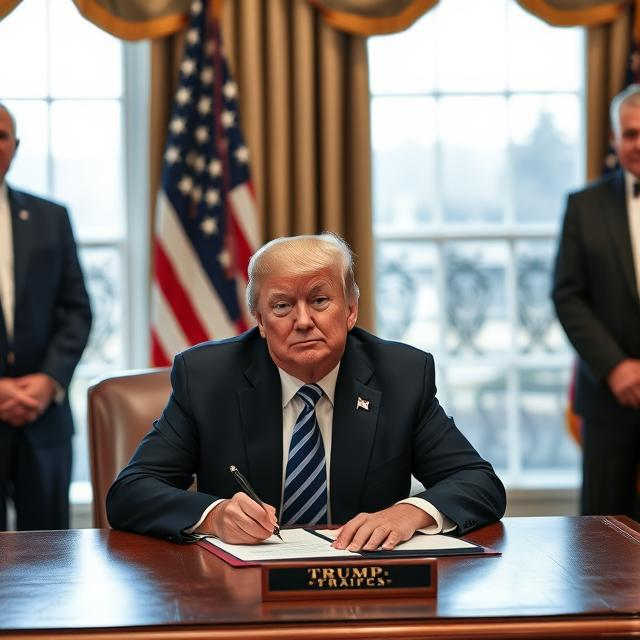
What we’re pissed about Trump’s remark, which we don’t even know is why we’re pissed, is that Trump’s trade war is political. If it isn’t economical, which many believe it isn’t, then he truly couldn’t care less if the American economy suffered needlessly.
After all, Trump isn’t joking about a third term for the 47th POTUS, in defiance of the American constitution. Former political economist Carlos Martinez believes Trump’s auto tariffs might be a diamond in the rough, dulled by poor craftsmanship.
"They might [benefit domestic industries and the US economy], but not the way they are implemented by Trump," said Carlos.
"Where are the subsidies the tariffs should be transformed into to help domestic industries? There is not a plan, a clever one, to reconstruct the US industry. Just the “tariffs show.” Tariffs are used politically, not economically.”
Is Trump’s tariff a mere political tool?
Less than a week ago, the new Canadian Prime Minister would answer yes. Mark Carney had said Trump is using the tariff to attempt to break Canada “so he can own us.” However, the man would later turn around to say Trump “respected Canada’s sovereignty” after a phone call with him.
Is Carney’s capitulation merely for the sake of relations or does he really believe the Trump tariffs aren’t political weapons after all?
Still, many, like newspaper columnist Gary Scheinoha, aren’t on board with Trump’s long-term vision of American manufacturing. They believe the tariffs simply can’t benefit the country “since American cars are often assembled by cheaper labor outside the US.”
When people talk about how extrication (which is what the tariffs are) will hurt as hell, they inadvertently vindicate the President. It hurts so bad to extricate ourselves from neighbors near and friends further afar because we’re overly reliant on them.
There’s nothing so terrible about relying on neighbors except in Trump’s books. His trade philosophy openly prioritizes domestic job creation and manufacturing over global supply chain efficiency.
Reducing the trade deficit is important to a president who believes his return to the White House heralds the “Golden Age of America.” I return to this chamber tonight to report that America's momentum is back," the President said in his "Renewal of the American Dream" speech.
Our spirit is back. Our pride is back. Our confidence is back. And the American Dream is surging-bigger and better than ever before. The American Dream is unstoppable, and our country is on the verge of a comeback the likes of which the world has never witnessed and perhaps will never witness again.”
Philosophies like this explain why blue-collar workers love Trump, the unapologetic champion of American manufacturing. If he succeeds with his “methods for seeking a third term,” he could leverage this economic nationalism to appeal to his voter base– again.
Putting Words In The President’s Mouth
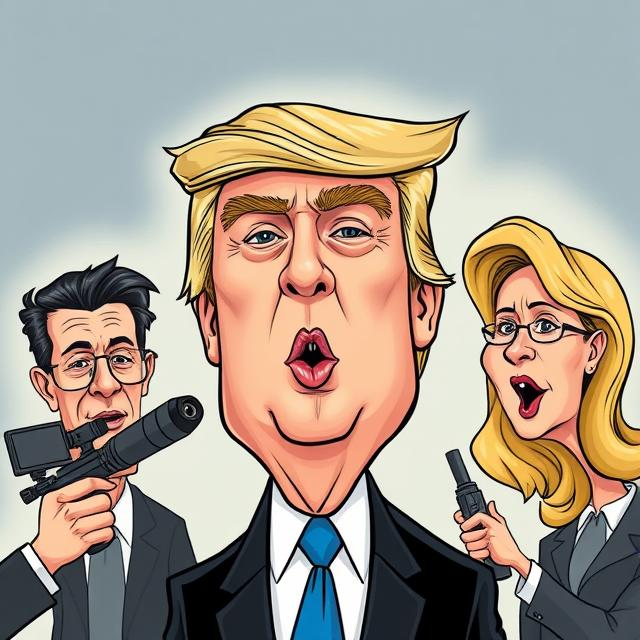
It’s easy to think Trump's people were merely covering the President's backside when they said foreign companies were the target of his “couldn’t care less” statement.
The President's assertion was widely criticized but often misinterpreted, I believe, intentionally. He made the remark when NBC News pressed him for comments on a recent WSJ report that he warned CEOs not to raise prices. Trump denied issuing such a warning. It was at this point that he said he couldn't care less.
“I couldn't care less if they raise prices because people are going to start buying American-made cars."
In other words, he doesn't care if imported cars become more expensive as long as it pushes people to buy more made-in-America. "I hope they raise their prices," the President said, “because if they do, people are gonna buy American-made cars. We have plenty.”
The problem is we don't have "plenty" of "American" automobiles. Even Teslas, according to Teslarati, is made up of 75% US and Canadian parts, with the remaining 25% being foreign components.
The vehicles' high voltage controller, bus bars, aero wheel caps, plastic trim bits, and computers are reportedly sourced from China, while Japan takes partial credit for the Panasonic-Tesla-developed batteries. The headlights are made in Malaysia while the glass and wheels are from Mexico.
It’s a similar story with just about every American marque, including Ford, GM, and Stellantis. America’s reliance on complex supply chains spanning North America is exactly why Ford CEO Jim Farley didn’t mince words when he said Trump’s proposed tariffs will blow an unprecedented hole in the US industry.
Still, Trump never said he hoped American cars would get more expensive. It doesn't make sense where the MAGA-minded Trump is concerned. This didn't stop media outlets and critics from seizing the opportunity to frame the President's words as indifference to consumer hardships.
Cloudy With A Chance Of Windfalls
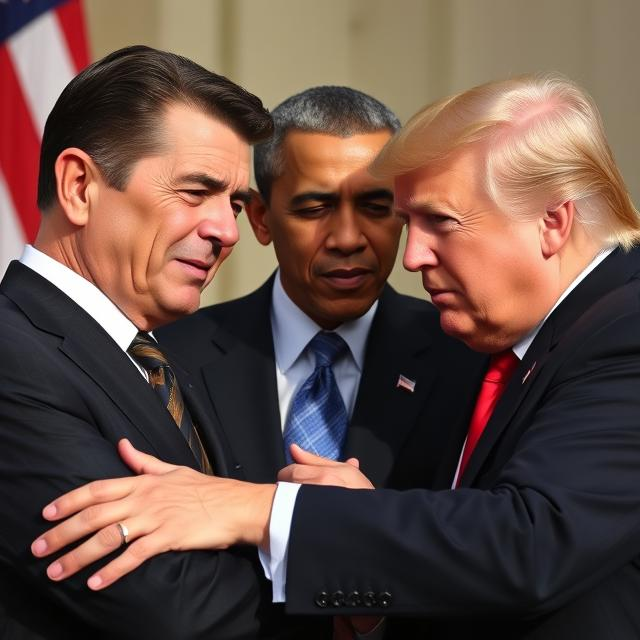
Ironically, Nissan’s decision to cut prices for its new Rogue and Pathfinder SUVs at this time might be an early indication of what's coming, what Jim Farley said was coming.
Farley had earlier said Trump's tariff will cause "one of the biggest windfalls ever" for imports from South Korea, Japan, and Europe, a “bonanza for our import competitors,” he called it.
Meanwhile, just hours ago, EU chief Ursula von der Leyen implied the bloc has devised an effective tit-for-tat strategy in response to Trump's trade war. "We do not necessarily want to retaliate but, if it is necessary, we have a strong plan to retaliate, and we will use it.”
Ultimately. It may not really matter who is Trump’s target in his “can’t care less remark if his tariff weapon backfires. America must remember Trump isn’t the first POTUS to take this road.
Reagan imposed quotas on Japanese car imports in the 1980s and it helped boost US auto manufacturing and preserved jobs. And what about Europe? The bloc’s protectionist policies, such as the Common Agricultural Policy, use tariffs and subsidies to support European farmers.
Obama’s tariffs on Chinese tires helped domestic producers regain market share. While Trump's sweeping tariffs appear particularly extreme, history is proof that targeted trade barriers can benefit local industries.
America First, Wallet Second: The Cost Of Trump’s Trade Policies

Reducing trade deficit by imposing sudden, unresolvable tariffs on friends and allies will strain global trade relationships but hopefully also bolster the US economy by creating jobs and fostering innovation within domestic industries. Innovation is a particular silver lining to Trump’s auto tariffs.
For example, GM CEO Mary Barra has reassured stakeholders during a Wolfe Research investment conference. She said the company is working across its supply chain, logistics network, and assembly plants to potentially mitigate up to 50% of the expected costs associated with the tariffs.
Similarly, Jim Farley, in an internal memo obtained by the Detroit Free Press, reassured employees that the company is actively studying the potential impacts and exploring strategies to mitigate challenges.
While many industry watchers don't see the touted job creations and a strengthened economy as realistic, some, like Freddie Chen, a self-professed agnostic, do. To him, Trump’s moves are “workable but with premises.” The reason is tariff is naught but trade protectionism.
“Protect what from what?” asked Chen. “Protect local business from a foreign business which has advantages over local business. So, it aims to add the price to wave the advantage of technology or price advantage of foreign business over local business …
To be honest, Trump is not considering the economy but mainly on his promise to bring manufacturing industries and jobs back.”
Exactly! That's all President Trump cares about, which explains why he couldn't care less if people paid an extra $10,000 for the 2026 Toyota Camry. "So, forget about inflation and price raising,” Chen says. “Just check if the car manufacturing and jobs will be back or not.” Perfect.